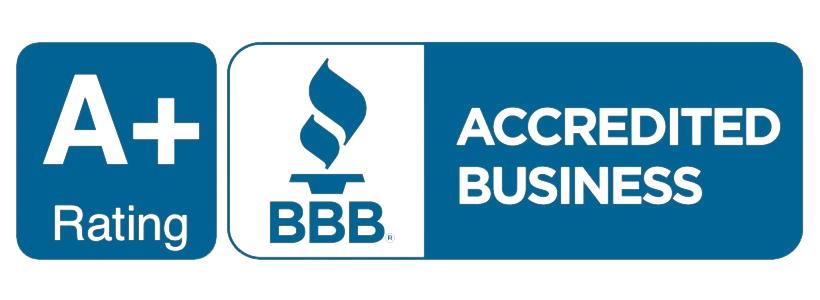Mastering Home Sale Taxes in Iowa and Illinois
Selling a home is a significant financial event that comes with its own set of challenges, especially when navigating the complex world of taxes. Homeowners in both Iowa and Illinois must understand the unique tax implications that come with the sale of a property within these states. From determining potential capital gains taxes to taking advantage of exemptions and deductions available, it’s crucial for sellers to arm themselves with knowledge to ensure a smooth transaction.
Grasping the Basics of Capital Gains Tax
For homeowners in the Quad Cities and beyond, getting a handle on capital gains tax is an essential part of the selling process. At its core, capital gains tax pertains to the profit made from selling assets, like your home, for more than the purchase price. When you sell a home, the difference between the selling price and the original purchase price, minus eligible expenses and improvements, constitutes the capital gain on which taxes may be owed.
Defining capital gains in the context of home sales
Capital gains are typically realized when a property is sold at a higher price than what was originally paid. For example, if you bought your property in Davenport for $150,000 and sold it for $250,000, the $100,000 gained could be subject to capital gains tax, not accounting for adjustments like home improvements or selling costs. Not all of this gain necessarily results in a tax bill due to possible exemptions and deductions.
The tax rates for short-term vs. long-term capital gains
Capital gains are classified into two categories: short-term and long-term, which are defined by how long you’ve owned the property. If you’ve owned the property for less than a year before selling, it’s considered a short-term gain, taxed at your regular income tax rate. On the other hand, long-term gains apply to properties held for more than a year and benefit from a reduced tax rate, which is generally more favorable to taxpayers.
Overview of federal capital gains tax rates for different income brackets
Your income level significantly influences the rate at which long-term capital gains are taxed. As of the latest tax year, federal long-term capital gains tax rates are set into three main brackets: 0%, 15%, and 20%. Lower-income individuals may qualify for a 0% rate, while those with higher incomes could be taxed at 15% or even 20%. Specifically, for single filers in Illinois and Iowa, the 0% rate applies to annual incomes up to $40,400, the 15% applies up to $441,450, and the 20% rate affects incomes above that. It’s important to note that these thresholds vary based on your filing status, so checking with the IRS or a tax professional to understand where you fall is advisable.
As you navigate the complexities of selling your home in the Quad Cities, keeping these tax implications in mind can aid in making informed decisions. Stay tuned for added insights in the subsequent sections where we look into exemptions, deductions, and local nuances in Iowa and Illinois’s tax laws that can affect your home sale’s financial outcome.
Exemptions You Might Qualify For
When selling a home, the tax implications can be intimidating, but there are exemptions designed to ease the burden for sellers. Let’s take a closer look at the tax relief that may be within your reach.
The Primary Residence Exclusion and Eligibility Requirements
One of the most significant exemptions is the primary residence exclusion. If you’re selling your primary residence, you may qualify to exclude up to $250,000 of capital gains from your taxable income, or $500,000 if you’re married and filing jointly. To be eligible, you must have owned and lived in your home for at least two of the five years leading up to the sale. This does not need to be consecutive, but a total of 24 months of residency is required to qualify for this exemption.
Partial Exclusion for Qualifying Unforeseen Circumstances
In cases where you haven’t met the two-year requirement due to specific unforeseen situations, such as job relocations, health issues, or other qualifying events, you may still benefit from a partial exclusion. The IRS guidelines outline these exceptions, and careful documentation is crucial should your situation qualify for this tax relief.
Key Deductions to Reduce Your Tax Bill
Aside from exemptions, various deductions can also reduce your capital gains tax liabilities.
Selling Costs That Can Be Deducted From Capital Gains
Many of the expenses associated with selling a home can be subtracted from your capital gain. These include selling commissions, advertising fees, and legal costs. Sellers can also deduct the cost of staging and improvements made specifically for the sale, provided these costs are incurred within 90 days of the closing date.
Home Improvements and How They Affect Your Tax Basis
Investments in your home, such as renovations or additions, can also affect your tax position. These improvements, or capital improvements, increase your tax basis in the home – which is the original purchase price plus any eligible renovations. A higher tax basis reduces the capital gains, hence decreasing the potential tax owed.
Iowa and Illinois Specifics
Rounding out the tax considerations for Quad City sellers is the need to understand both Iowa and Illinois state-specific laws influencing tax obligations.
A Comparison of Iowa’s and Illinois’ Tax Laws Related to Home Sales
Both Iowa and Illinois levy state income taxes on capital gains, but rates and allowances may vary. It’s critical to examine the specific regulations for your particular state to ensure compliance and optimize your tax situation.
How state taxes interact with federal obligations is another crucial piece of the financial puzzle. While federal taxes often account for a larger sum, state taxes can still significantly affect your net proceeds from a home sale. State-specific exemptions and credits also come into play and can provide additional relief.
To navigate these state tax intricacies successfully, always refer to the Iowa Department of Revenue and Illinois Department of Revenue or consult with a local tax expert knowledgeable about Quad City real estate transactions.
Understanding these exemptions and deductions, along with how local laws affect your financial outcome can give you a clear advantage when selling in the Quad Cities area. Stay tuned for the next section covering the nuances of taxable income in relation to your capital gains tax liability.
The Role of Taxable Income in Determining Your Tax Liability
When it comes to selling your home, preparing for tax season is about understanding the bigger financial picture, specifically the role of your total taxable income. Your overall income for the year you make the sale will determine your placement in tax brackets, which directly affects your potential capital gains tax.
Higher total taxable income could push you into a higher capital gains tax bracket, increasing the rate applied to your home sale profits. It’s essential to protect your income, including the pending sale, to anticipate your tax liability potentially. Strategic timing of income or deductions, such as selling in a year when your income may be lower, can be beneficial.
Consider contributions to retirement accounts or optimizing business expenditures to adjust your taxable income. Consulting with a tax advisor who understands the nuances of income tax planning in this context can be greatly advantageous.
Preparing for Tax Season Post-Sale
A successful home sale means you’ll need to prepare for the tax implications that follow. Adequate planning and record-keeping go a long way in simplifying tax season.
Important Documentation and Record-Keeping Practices
Keep all relevant transaction documents, such as the closing statement, proof of improvements, and receipts for selling expenses. These records serve as the foundation for calculating your capital gains accurately. Make sure to document any events that may influence your eligibility for exemptions or deductions, such as forced moves for health reasons.
Be aware of the IRS deadlines for reporting capital gains, typically through Schedule D attached to your Form 1040. If quarterly payments are required, note those dates to avoid underpayment penalties.
Tax Filing Tips for Home Sellers
Diligently report your home sale on your tax return, even if all proceeds are exempted due to the primary residence exclusion. The precise reporting method may vary depending on if the total proceeds must be declared or just the taxable portion. Utilize reputable tax software or a professional to ensure accuracy.
When to Consult a Tax Professional
Some home sale scenarios are more intricate than others, indicating the need for professional tax advice.
Complex Cases That Warrant Professional Tax Assistance
If you’re dealing with multiple properties, unusual tax events, or sizable gains that surpass exemption limits, a tax professional can provide clarity and peace of mind. They can also navigate state-specific complexities, ensuring you benefit from all available tax strategies.
Benefits of Consulting with a Tax Expert in Home Sale Transactions
An expert will assist you in optimizing your financial outcomes, offer guidance on state and federal interplay, and provide tailored tax planning. They’ll ensure compliance while helping you understand the potential impacts of your home sale on your overall tax situation.
To find a qualified tax advisor familiar with real estate matters, utilize trusted professional networks or resources from agencies like the IRS.
In closing, your diligence and knowledge, especially when combined with professional advice when needed, can make navigating taxes for your home sale transaction far less daunting. Approach the tax season with confidence, armed with insights from this guide and a trusted expert by your side.
Ready to sell your home but unsure about the tax implications? Contact Midwest Home Buyers we are here to guide you every step of the way. From capital gains to exemptions, we’ll ensure you’re prepared for a smooth and tax-savvy sale.













